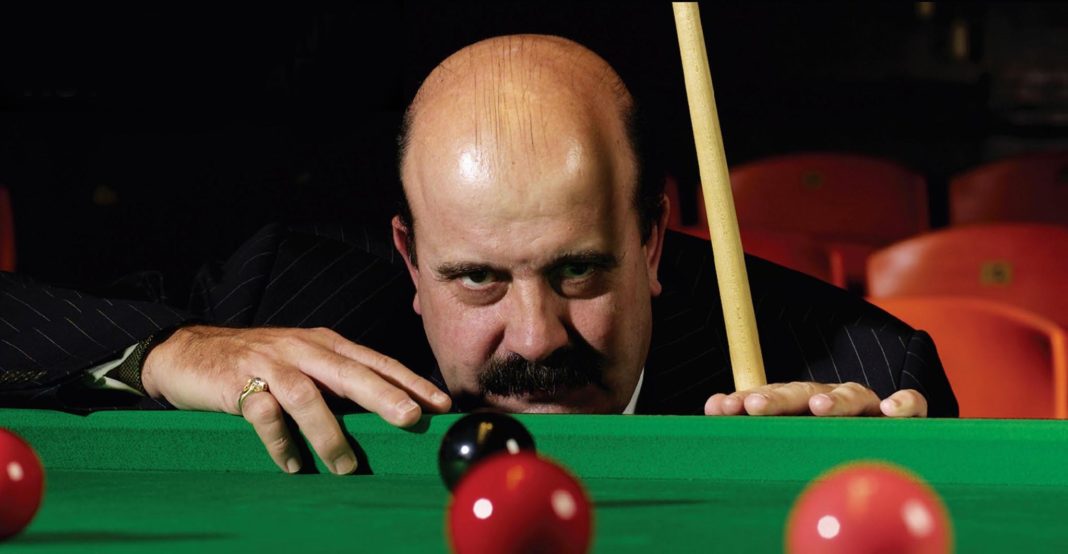- Chief sports Editor Andrew Atkinson looks back to the Civil Service Amateur Billiards & Snooker Association and its takeover by the WPBSA in the wake of Villamartin based snooker star Willie Thorne as he undergoes chemotherapy treatment for leukaemia in Torrevieja hospital.
- Remembered by former CSABSA Chairman Maurice Littlewood.
ONE of snooker’s most loved characters Willie Thorne has been remembered by Maurice Littlewood, former chairman of the now defunct CSABSA
“For many years we held our annual national finals at Willie’s in Leicester,” said Maurice ex-Chairman of the Civil Service Amateur Billiards & Snooker Association.
Leicester born Thorne, 66, is battling illness in Spain, having been diagnosed with leukaemia earlier this year, added to other issues including gout and sepsis.
In February 1885, a meeting took place to consider revising the rules of billiards, chaired by a Mr A. H. Collins-Orme and attended by the majority of the prominent professional billiards players brought together to rewrite the rules.
Collins-Orme proposed that an association be created. This was agreed, and The Billiard Association of Great Britain and Ireland, India and the Colonies, known as the Billiard Association, was formed.
Ten players were tasked with authoring a new set of rules for English Billiards meeting weekly in and finished writing the rules on 21 September 1886.
Sydenham Dixon was at the forefront behind the formation of the Billiards Association. Prominent player John Robert’s junior became the Billiards Champion in 1886, after William Cook failed to respond to Roberts’ challenge for the title after refusing to recognise the Association’s authority.
The Association came to be recognised as the governing body for billiards, and organised amateur and professional championships. They also produced templates for standard pocket sizes, which tables had to conform to if breaks made on them were to be recognised in official records.
The Billiards Association’s control over the game was challenged by the Billiards Control Council (BCC), formed in 1908, which issued a different set of rules.
The key differences in the BCC’s version were that a player could not make more than two miss shots successively, and a simpler explanation of penalties.
The professional players changed their allegiance to the newer Control Council, and the professional championships were played under BCC rules, whilst most amateurs continued to play under Billiards Association rules. The two organisations decided that it was in their mutual interest to amalgamate, and formed the Billiards Association and Control Club, later renamed the Billiards Association and Control Council (BA&CC), in 1919.
In 1935, the Women’s Billiards Association (WBA) affiliated to the BA&CC. On 10 June 1936, the Billiards Association and Control Council agreed to take over management of the WBA.
Lord Lonsdale, president of the BA&CC, also became president of the WBA.
Leslie Driffield member of the BA&CC Council was present at a meeting where the Council nominated him as the challenger to Rex Williams for the professional Billiards Championship.
Williams declined to play Driffield, within the five months’ time limit that the BA&CC Council had set, which expired on July 7, 1970, and forfeited the title, which was then contested between Driffield and Jack Karnehm in June 1971.
On October 1, 1970, the Professional Billiard Players Association, which had been re-established in 1968 Williams and seven other players, disaffiliated from the BA&CC.
The Professional Billiard Players Association changed its name to the World Professional Billiards and Snooker Association on December 12, 1970, and declared itself the governing body for the professional game, recognising Williams as champion.
Driffield and Karnehm were, at first, the only two professionals to recognise the BA&CC as continuing to have authority over the game.

The BA&CC had its own premises for the first time in 1970, when it opened offices and a match room, based in Haringey. Vera Selby and Alf Nolan were among the players who took part in exhibition matches at the official opening.
On January 21, 1971 the Billiards Association and Control Council changed its name to the Billiards and Snooker Control Council (B&SCC).
At the beginning of the 1990s, the B&SCC was struggling financially as a result of the removal of its Sports Council funding. The London and Home Counties Billiards and Snooker Association cut links with the B&SCC in 1990, to start a new English Billiards and Snooker Federation.
In 1992, the World Professional Billiards and Snooker Association (WPBSA) was expected to take over the B&SCC, however following a vote of the B&SCC members approving this, the WPBSA discovered that the B&SCC had undeclared alleged contingent liabilities of £100,000 and cancelled the planned takeover. The B&SCC went into voluntary liquidation.
The WPBSA took over the running of tournaments that had been organised by the B&SCC, and paid the prize money originally announced. It also bought the B&SCC’s trophies and other assets from the liquidator and ran the amateur game, whilst looking to support the establishment of successor bodies to the B&SCC.
A GoFundMe campaign has been set up to help Willie Thorne at present, during his time of illness, of which Maurice Littlewood has donated €250.
Looking back, Maurice remembers Willie and the family, including brother Malcolm and his mum Nancy: “Willie is an absolutely charmer, as was his brother Malcolm, and their mother Nancy,” said Maurice.





